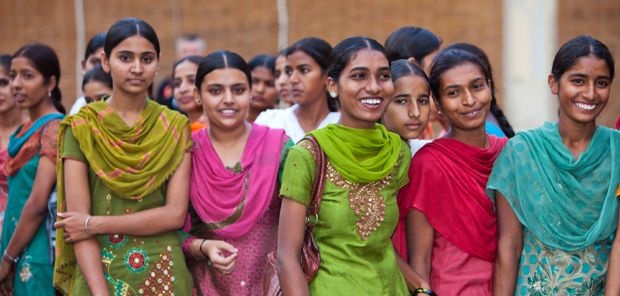Since the creation of Pakistan in 1947 Pakistan inherited the menace of poverty. The burden of this poverty was put heavily on the female population which is 50% of the total population of Pakistan. ON the top of it, women were neglected and under-nourished. All the governments had tried in one form or the other to develop the women but could not make a very happy progress because of various reasons. Today the present government is committed and believes in creating, an enabling environment for people in general to enjoy long, healthy and creative life and for women in particular. Economic development, if it is to be meaningful and sustainable, must involve and accrue to all citizens. At the same time economic growth alone cannot guarantee social harmony, especially in an under developed societies. National development must be balanced by a strong and real emphasis on equitable distribution of development benefits especially for the lower segments of the population. This philosophy of development i.e., growth with equity is to be embodied in all national development policies. Poverty alleviation and social development has to be the central part of the overall national development.
In the developing world, the menace of poverty is deep routed, especially in the rural areas while Pakistan is no exception to it. Therefore the United Nations identified the rural women as a catalyst for change if the objective of eradicating poverty is to be attained. Invisible and industrious, neglected and under nourished, She is the pivot on which the rural household functions. She is the major contributor to the agricultural labour force producing more than 50% of the developing world’s food. She is the one who tend sows, reaps, gather crops, cares for animals, plants herbs, and looks after the families but hardly ever recognized in the statistics of production while easily made a target of cultural malpractices which not only hurts her dignity but even take her life. It is very important to bring the women into the lime light so that policy makers could design their development interventions in a way that could politically and financially empower her enough to make a difference in the living conditions of herself and her family and her immediate surroundings. At the same time giving her the personal security and dignity that is her fundamental right.
Today’s globalized world offers many opportunities and challenges while demonstrating the need for having, a level playing field for men and women; this can only be established if we shun prejudices and isolationism. We need to explore innovative ways to overcome the formidable obstacle to the empowerment of women and gender equality. There is a need to focus and devise strategies to enhance women’s role in decision-making and power sharing in all tiers of the government.
Our commitment is reflected in the newly created “ Benazir Income Support Programme” through which cash assistance of Rs.1000/ per month is provided to poor households with an allocation of Rs 34 billion for 2008-09. This is the direct disbursement of assistance to the poor women at her door step. It will certainly enhance her nutrient intake putting her in a better position to take part in the development of the country.




